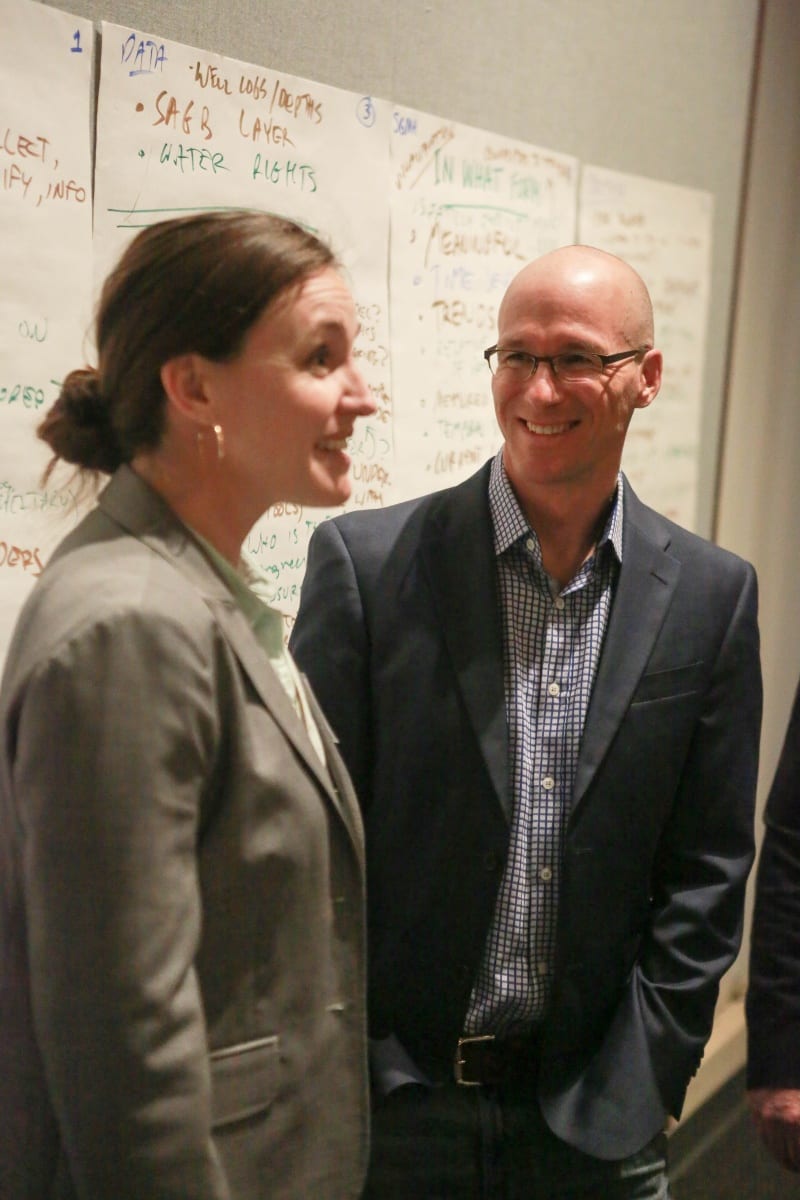About the Water Program
The Wheeler Water Institute contributes robust analysis and forward-looking policy recommendations to directly inform decision-making. Anchored by our unique blend of legal, policy, and technical expertise, we bring clarity and actionable research to a famously challenging field. Established in 2012 at the Center for Law, Energy & the Environment (CLEE) at Berkeley Law, the Institute conducts projects at the intersection of law, policy and science.
With an expanding statewide population and increasing precipitation extremes, California must rethink the way it manages water – from recognizing the linkages between groundwater and surface water, to enhancing drinking water system resilience for small and disadvantaged communities, to reimagining wastewater as a resource. Our research aims to address these challenges by informing California water governance and guiding stakeholders through complex policy issues in order to improve decision making across the state.

Recent Publications
- Information Needs for Water Markets: Fair and Effective Water Markets Require Adequate Measurement and Reporting of Diversion and Use (November 2024)
- Five Guiding Principles for Effective Voluntary Agreements: A Case Study on VAs for Water and Habitat in California’s Bay-Delta Watershed (January 2024)
- The Cost-Effectiveness of Using Rebates to Incentivize Groundwater Recharge (November / December 2023)
- Recharge net metering (ReNeM) is a novel, cost-effective management strategy to incentivize groundwater recharge (October 2023)
- Managing Water Scarcity: A Framework for Fair and Effective Water Right Curtailment in California (April 2023)
- Cultivating Effective Utility-Regulator Relationships Around Innovation: Lessons from Four Case Studies in the U.S. Municipal Wastewater Sector (Aug 2022)
- How Can We Govern Large-Scale Green Infrastructure for Multiple Water Security Benefits? (Sept 2021)
- Piloting a Water Rights Information System for California (July 2021)
- The Institutional Dimensions of Groundwater Recharge: A Special Collection (April 2021)
- Regulators and utility managers agree about barriers and opportunities for innovation in the municipal wastewater sector ( March 2021)
- Civic Engagement and Water Data: How Can California Make Data Work for Decision Makers? (Sept 2020)
- Examining Regulation and Innovation in Municipal Wastewater (Jan 2020)
- California groundwater management, science-policy interfaces, and the legacies of artificial legal distinctions (April 2019)
- Addressing Institutional Vulnerabilities in California’s Drought Water Allocation (Aug 2018)
- When is Groundwater Recharge a Beneficial Use of Surface Water in California? (Aug 2018)
- Learning from California’s Experience with Small Water System Consolidations (May 2018)
- Recharge Net Metering to Enhance Groundwater Sustainability (April 2018)
- Improving California’s Streamflow Monitoring System (April 2018)
- Navigating Groundwater-Surface Water Interactions under the Sustainable Groundwater Management Act (Mar 2018)
- Data for Water Decision Making: Informing the Implementation of California’s Open and Transparent Water Data Act through Research and Engagement (Jan 2018)





